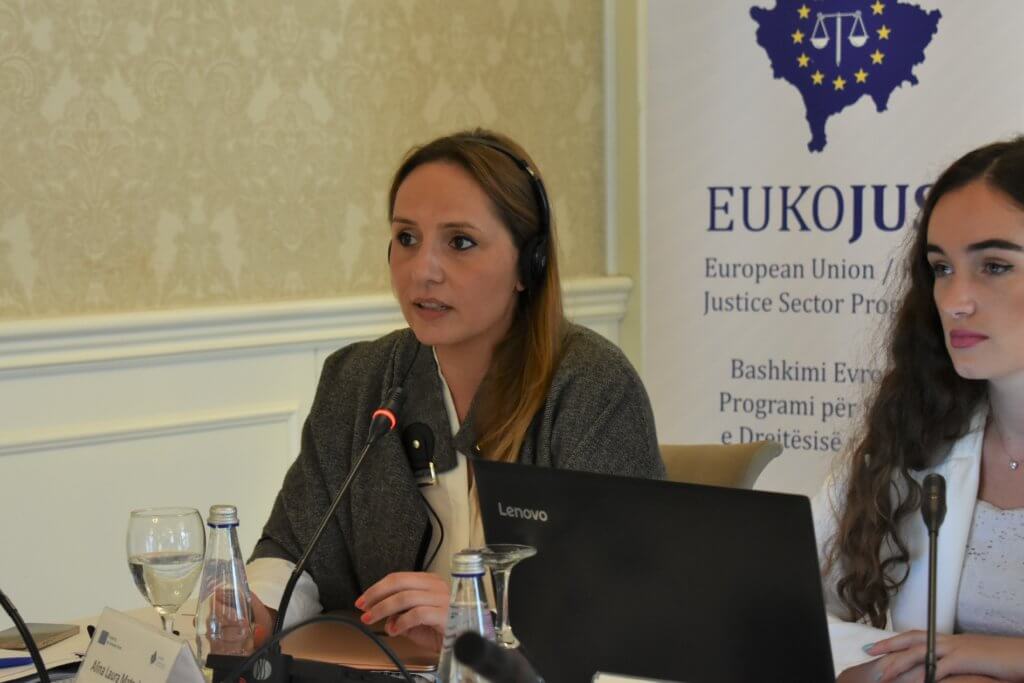The initiative of improving the status of civil servants in the judicial system, which started a year ago, got a new and important momentum this week. Representatives of justice, trade unions and relevant associations, assisted by EUKOJUST experts, addressed the remaining issues during a two-day workshop held in Peja.
The status of the civil servants in the judiciary is a critical element of judicial independence and requires a clear, stable, predictable and legal basis. In this sense, the Constitutional Court of Kosovo decided almost two years ago that the support staff in the judiciary have to have their status regulated independently from the general civil servants in the public administration.
EUKOJUST is therefore supporting the Ministry of Justice, the Kosovo Judicial Council and the Kosovo Prosecutorial Council to find common ground for a legal and legislative solution. Extensive negotiations and discussions took place with all stakeholders involved, and research and documentation were performed by all institutions involved in the process.
After an initial workshop in March 2022, EUKOJUST provided during this workshop a platform for all parties involved in the process to discuss the concept document and to discuss and debate all options identified thoroughly. The goal was for all parties to agree on the way forward, that all concerns and questions are addressed and that all institutions, trade unions, and professional associations are lined up behind a single approach that can be advanced into a draft law for the status of civil servants in the Kosovo judiciary.
















